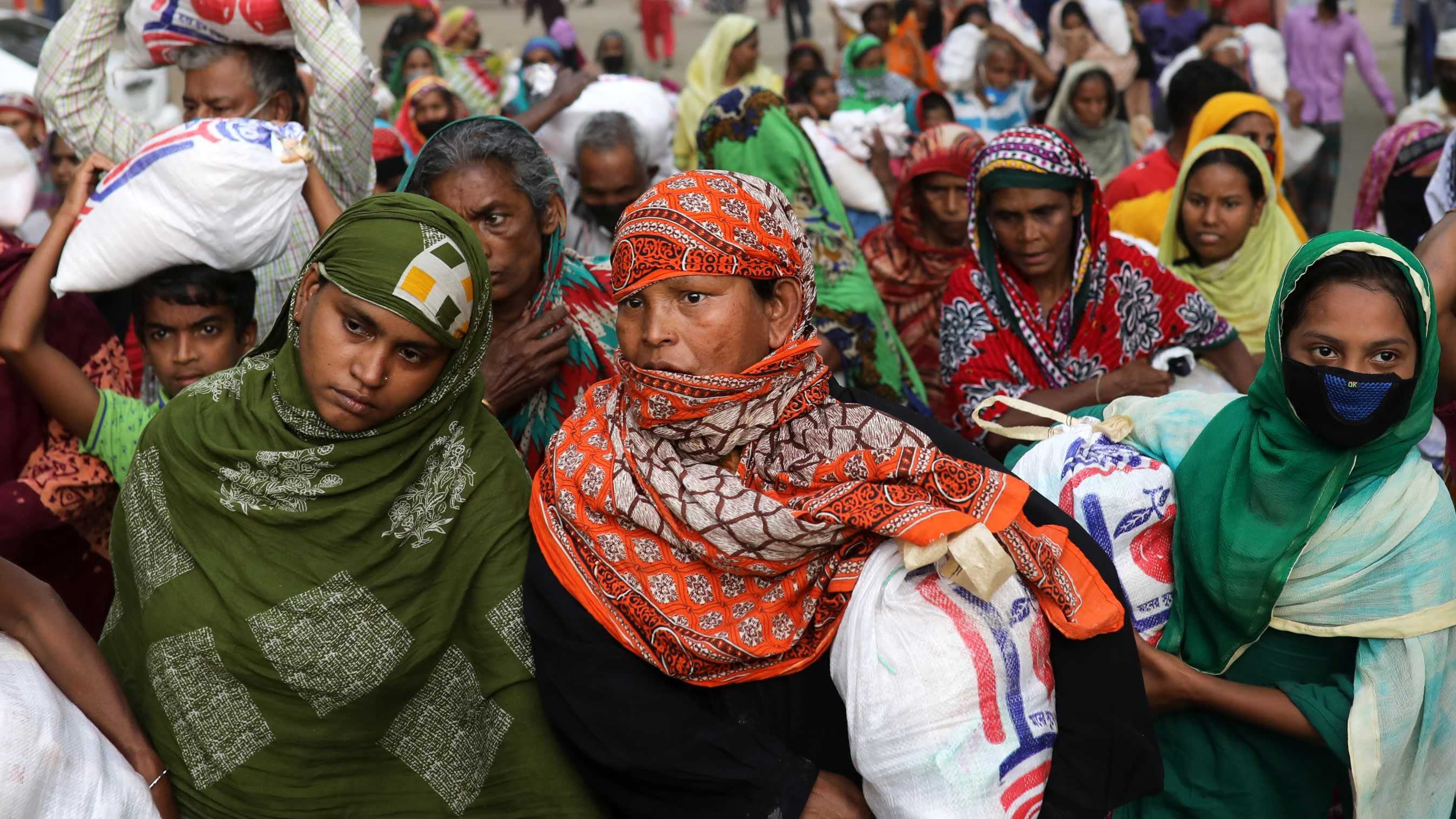Bangladesh seeks IMF lifeline just after record stimulus package

Collected
Bangladesh is seeking $700 million found in financial backing from the International Monetary Fund after rolling out its biggest-ever stimulus package. The government expectations the move will prevent the coronavirus pandemic from ravaging its trademark macroeconomic steadiness.
"We are currently assessing the government's request to the IMF for emergency funding," Ragnar Gudmundsson, the fund's representative in Dhaka, told the Nikkei Asian Review.
The plea coincides with Prime Minister Sheikh Hasina's announcement on Sunday of a $9 billion stimulus package, add up to 2.5% of gross domestic merchandise, targeted at cushioning the economical blow from the lockdown induced by the coronavirus outbreak.
The rescue package is meant "to keep carefully the economy moving, minimize hardship for the populace, especially the more vulnerable, and preserve social stability," said Gudmundsson.
Sheikh Fazle Fahim, president of the Federation of Bangladesh Chambers of Commerce and Sector, said the package's targeted actions will revamp economic actions by boosting liquidity, sustaining organization businesses and slashing unemployment.
To maximize the application of money, he said, the most notable chamber is dealing with the finance and commerce ministries and the Primary Minister's Office to make sure smaller companies, a lot of which have simply no usage of banking finance, may leverage the stimulus outlays.
"The idea is to keep economic activities running as much as possible," Fahim told Nikkei.
Tiny and midsize enterprises will receive $2.35 billion as working capital from banks at 9%, which the government will subsidize 5%. The bundle also contains around $3.5 billion in subsidized loans to industrial and services sectors, $600 million for the textiles industry, and another $600 million for pre-shipment credit refinancing. Furthermore, export funding has been lifted from $3.5 billion to $5 billion.
But this will fall short of the total needed, which includes prompted Bangladesh to carefully turn to the donor community for balance of repayments and budget support.
BoP posted a good modest surplus of $132 million found in the seven a few months to January, but pressure could build found in the coming months, just as sagging demand in virus-hit European countries and the U.S. drove March shipments of textiles, the country's major export item, down by 30%.
Ahsan H Mansur, executive director in the Policy Exploration Institute of Bangladesh, a good Dhaka-based think-tank, is unconvinced about the achievements of the relief package, saying the authorities have put an excessive amount of emphasis on the monetary recovery, overlooking the primary and second pillars -- containing COVID-19 and food protection of 40 million the indegent.
"You're trying to revive the market keeping the pandemic active," Mansur told Nikkei. "It's an incoherent strategy." He added, "The primary pillar [disease control] gets minimal attention."
Furthermore, he is skeptical about financing the package since the banking sector has no additional wherewithal, because banking institutions will not receive deposits within the next six months and their profits will take a hit as a result of the moratorium on bank loan repayment.
The package gave no clear indication of how banks will mobilize funds, or if the central bank will start refinancing, offer partial risk guarantees or choose quantitative easing.
Mansur of PRI highlighted one downside. He explained that, for example, directors of one lender, whom he called "self-serving clients," could eat up almost all of the rescue profit collusion with their peers in another.
"This is dangerous found in the Bangladesh context," he said. "Deserving companies might not exactly get loans."
Furthermore, Mansur estimated that up to $6.12 billion will end up in the pockets of big corporations while exporters will love the great things about $2.6 billion.
The package is supposed to keep businesses afloat, but its success will hinge how it really is implemented, according to Zahid Hussain, a former lead economist of the World Bank's Dhaka office.
Hussain said it the main element is if the package will drive back unemployment and bankruptcy while supporting labor income.
Shams Mahmud, president of the Dhaka Chamber of Commerce and Market, welcomed the package, but said the onus now could be on financial institutions so that genuine entrepreneurs, not willful defaulters, will get financial firepower.
"The economy possesses slowed down. Exports will shrink in countries like Germany," he said.
Nevertheless, he is bullish about the monetary recovery over time, despite temporary hiccups.
Previous month, Bangladesh sought budget the help of some multilateral lenders, including the World Lender, the Asian Development Bank and the Asian Infrastructure Investment Bank, said the official of the Economic Relations Division, an arm of the ministry of finance.
As well as budgetary assistance, BoP battle chest can be "instrumental to preserving a good country's growth leads and macroeconomic stability," said the IMF's Gudmundsson.
The South Asian country's macroeconomic success has been built on higher growth (8%-plus), lower inflation (slightly higher than 5%) and manageable fiscal deficit (slightly greater than 5%).
Densely-populated Bangladesh reported 112 new verified coronavirus cases about Thursday, bringing the tally to 330, including 21 fatalities. The united states confirmed its first circumstance on March 8.
The countrywide shutdown will continue until April 25.
Source: https://asia.nikkei.com
Tags :
Previous Story
- BARVIDA, poultry sector hail PM’s stimulus package
- Bangladesh announces $588 million package for coronavirus-reach export...
- We are in need of more research to...
- Bangladesh, Japan to form Joint Working Group to...
- Prime Minister Sheikh Hasina aims to build tech-savvy...
- No alternative to skilled manpower to face 4IR:...
- Stocks extend gaining streak to 3rd day
- Bangladesh- Indian engineering trade show kicks off in...